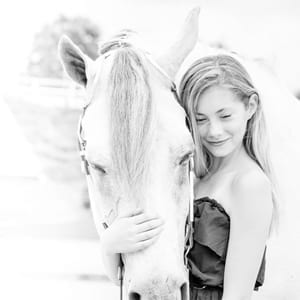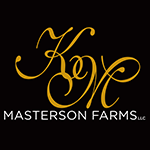Take Responsibility
With the Major Show Season in full swing, we may feel like our personal pressure cooker has been cranked up a notch or two. While some people like Nik Wallenda love high stress situations and can walk on a tightrope over the Grand Canyon, some of us may need a few practical tips to ensure that we come out of a high pressure situation un-cracked and intact.
It takes a Village
If you have a some time on your hands and a very large sheet of paper, an interesting exercise is to list all of the variables you encounter just so you can enter the ingate. In case you are short on time, here is a partial list that I put together:
Horse
Trainers
“Sponsor” – parents, spouse, family member, significant other
Competitors
Judges
Weather
Time that you show
Practice time
Sleep
Nutrition
Having just one of these factors out of whack could have a major impact on a rider’s confidence level and performance. As you take a closer look at this list, most of these things could be considered ‘out of your control’, making it easy to play the blame game, and decide things like, “If my horse wasn’t such a dingbat, I would have had a chance to win today”, or “If I didn’t show at midnight, I would have ridden much better.” However, when you decide to put your fate into another person’s hands, you may be giving up the very thing that you need to succeed- Personal Accountablity.
Accountablity is a choice
If your horse show experience feels more like the tail wagging the dog, then you may want to adopt a mindset that says, “No matter what happens, everything is up to me”. Now that doesn’t mean that people can’t help you, or that you have to do everything yourself, but it does mean that at then end of the day, You are the sole person responsible for your results. So let’s take our list and apply the Accountability Principle to a few of these…
- I am responsible for showing my horse, therefore, I am the one in control of my horse.
- My trainer’s job is to help prepare my horse, but I am responsible for how we perform.
- I have no control over judges’ placings, but I do control my performance.
- I do not control the weather, but I make decisions and prepare accordingly.
When you decide to take full responsibility for what happens, not only are you eliminating stress, guesswork and resentment, you are telling the universe that the buck stops with you, and you will become a force to be reckoned with.
The road to personal accountability begins with…”What?”
When something goes awry with our plan, it is only natural to ask, “Why is this happening to me?” However, when you ask Why, you have just entered the zone of no choice. Imagine that your house is on fire. Are you going to sit in a burning room and ponder the question, “Why is the house on fire?” Hopefully not. What you need to do is get yourself out of the house first, and if you want to do a root cause analysis on why the fire started, you should do that after you are safe and sound. A much better question begins with What and includes the words can I do about this now? Asking, “What can I do about this now?” puts you right back in the saddle and in charge of your own destiny.
Responsibility involves planning, delegating and communicating
Since there are several moving parts involved the preparation and execution of showing horses, you need to think like a project manager. Hold a planning meeting between all parties involved and decide who does what, and when they will do it. The key is that YOU are responsible for arranging and facilitating the meeting, gaining agreement on who does what, and communicating the plan. If something changes in the schedule or you feel that your preparation plan needs to change, YOU are responsible for communicating the changes. Managing the process will not only give you the confidence that you prepared exactly how you needed to, it will also eliminate stress and drama between trainers, barnmates and family members.
You are responsible for your attitude and feelings
Showing at major shows is stressful, and even with all of these good principles in place, there may be a point where you feel stress bubbling up inside. The thing to remember is that you have complete control over your attitude. If you start to feel like you are on the verge of a meltdown, you need to do something to stop it before it takes it’s toll on you and those around you. At the first sign of a bad attitude, that’s your cue to take a break and head your temper tantrum off at the pass by taking a time out. Some great ways to blow off steam are to just get away from the barn for a bit, have a conversation with somebody to get back on track, put on your iPod and listen to some music or take a nap. Whatever it is that you do, you will feel much better knowing that you made it through the show with a winning attitude because you decided that you are in responsible for everything–including yourself.
Kirsten Farris is a regular contributor to GoHorseShow.com and a Certified Sport Consultant, Certified Equestrian Fitness Trainer, and the Author of The Workbook for the Equestrian Athlete – A Guide to Showring Success. Kirsten and her horse, Lyles Al Lie, were the 2012 AQHA Select World Champion in Hunter Under Saddle. For more information contact her at: [email protected] © 2013









